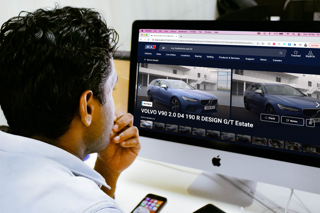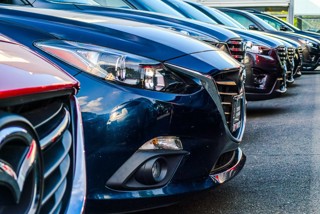By Philip Nothard, retail consumer price editor, CAP
Our research has consistently shown franchised dealers to be more optimistic about future business prospects than their independent counterparts.
But there are now signs that independents are beginning to feel better about their immediate future – perhaps still not as bullish as franchised dealers, but nonetheless more positive than for some time.
We question a large sample of both franchised and independents every month on a range of topics. A key question is always around how they feel business will change for them in the coming quarter.
A year ago those independents who thought business would improve numbered just 15%. And that was just those who thought business would improve a little. None believed business would improve significantly.
But that is now changing. The same question at the start of this year elicited a much more positive response. This time 24% expected a little improvement, but 4% were even more optimistic and expected a significant upturn.
So, what’s behind this gradual improvement in the mood of independents?
Interestingly, the clue may be found in the franchised dealer world. It’s all about the problems independents have had in sourcing the right kind of stock.
In short, they are struggling a little less in this area. The evidence is in the proportion of dealers who report difficulty in acquiring good used car stock.
This has fallen from 64% a year ago to 48% now, while the 75% of franchised dealers with the same problem has barely changed.
And this sense of improvement in the supply picture for independents stems directly from the expected focus by manufacturers on new car registrations forcing franchised dealers to register cars for which there are no immediate buyers.
Coupled with the general increase in part-exchanges entering the market, thanks to seriously competitive retail incentives, this spells some easing of the constraints on supply.
By unlocking more opportunities to do business this puts the independents in a stronger position than for some time.
Indeed, 2013 has been frequently dubbed ‘the year of the independent’.
This is because, without the pressure of being forced into tactics they may not wish to employ by a manufacturer, they have the ability and opportunity to change direction, adopt new approaches and generally respond to changing conditions far quicker than many main franchised dealers.
When you speak with the more positive independent dealers, they feel that they have the upper hand, especially without the huge overheads and standards to adhere to which come with the territory of a franchise.
We ask ourselves why overhead absorption now runs at 60% as opposed to the industry benchmark of 80%.
Independents are free to try things out, without a lengthy process of seeking approval.
A classic case is Jim Reid Vehicle Sales in Aberdeenshire, which sees its freedom to use the Twitter platform in a non-corporate way as a distinct advantage.
Reid said: “We’re using social media to our benefit without the fear that a manufacturer is looking over our shoulder.
"Getting customers involved at this level helps build mutual trust and admiration.”
But it is easy to get carried away with phrases like ‘the year of the independent’ and it is worth putting the rising optimism of independents into context.
This is because the mood of franchised dealers is still generally much more bullish. Indeed, from our sample of 126 dealers in total, none of the franchised dealers expect a decline in business whereas a quarter of independents still foresee a slight worsening of conditions for them.

















Login to comment
Comments
No comments have been made yet.